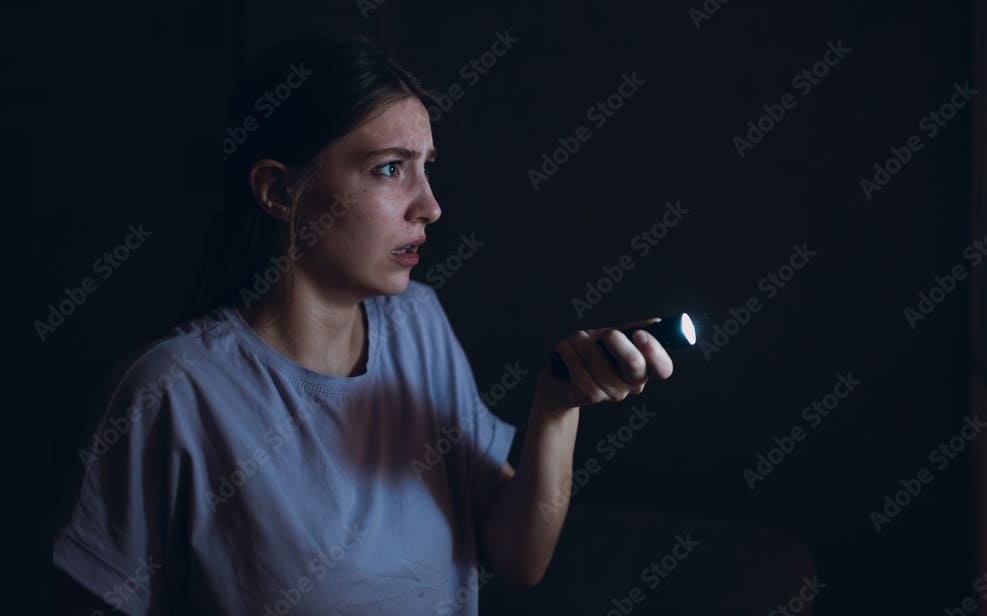Ever find yourself staring into the abyss of a dark room and feeling that shiver run down your spine? It’s a sensation that many of us experience, but for some, this fear of the dark can evolve into something much more serious. If the idea of darkness sends you into a spiral of anxiety, it might be worth exploring whether you’re dealing with a condition called Nyctophobia.
What is Nyctophobia?
Nyctophobia is more than just a simple fear of the dark. It’s an intense, often paralyzing fear that can disrupt your daily life. While most of us might have a moment of unease when the lights go out, nyctophobia can trigger overwhelming feelings of terror and dread that aren’t easily brushed aside. If you find yourself going to great lengths to avoid darkness, or if the thought of being in the dark is enough to make your heart race, you might be experiencing nyctophobia.
Symptoms of Nyctophobia
Imagine walking into a dark room, and instead of just feeling a bit uneasy, your entire body goes into overdrive. You might experience:
- A Racing Heart: Like your heart is trying to escape your chest.
- Sweaty Palms: As if you’ve just run a marathon.
- Shaky Knees: To the point where you might feel like you could collapse.
People with nyctophobia often experience a range of symptoms when faced with darkness. These symptoms can vary in intensity but generally include:
- Intense Fear: An overwhelming feeling of dread or terror when in dark environments or anticipating darkness.
- Physical Symptoms: Rapid heartbeat, sweating, trembling, or shortness of breath when the lights go out.
- Avoidance Behavior: Avoiding places or situations where darkness is present, including staying indoors at night or avoiding activities that involve low light.
- Sleep Disturbances: Difficulty falling asleep or staying asleep due to fear of the dark.
- Impaired Daily Functioning: Difficulty going about daily activities or maintaining normal routines due to fear.
For some, these symptoms can be so intense that they start interfering with daily activities. You might avoid going out at night or even find it hard to sleep because of fear.
Causes and Risk Factors
The reasons behind nyctophobia can be varied. Sometimes it stems from:
- Traumatic Experiences: Maybe something scary happened in the dark, and that fear stuck with you.
- Genetics: If anxiety or phobias run in the family, you might be more prone to developing them yourself.
- Childhood Fear: Fear of the dark is common in children, but for some, it can linger and intensify into adulthood.
Diagnosis and Treatment
If you think you might have nyctophobia, the best step is to consult a mental health professional. They can help diagnose the condition through:
- Clinical Evaluation: Discussing your fears, experiences, and any impact on your life.
- Diagnostic Criteria: Assessing if your fear fits the criteria for an anxiety disorder.
Treatment options typically include:
- Cognitive-Behavioral Therapy (CBT): Helping you understand and challenge your fears.
- Exposure Therapy: Gradually and safely exposing you to darkness to help reduce your fear.
- Medication: Sometimes prescribed to help manage severe anxiety symptoms.
- Self-Help Techniques: Practices like deep breathing and mindfulness can also be beneficial.
Tips for Coping with Nyctophobia
Here are some practical tips to help manage and overcome nyctophobia:
- Educate Yourself: Understanding nyctophobia can help you feel more in control.
- Build a Support System: Talk to friends, family, or support groups who can offer encouragement and understanding.
- Practice Relaxation Techniques: Deep breathing, progressive muscle relaxation, and mindfulness can help manage your anxiety.
- Seek Professional Help: Therapy can provide you with effective tools and strategies to address your fear.
Conclusion:
Having a fear of the dark isn’t something to be ashamed of, and it doesn’t mean you have to live in constant dread. Nyctophobia is a real condition, but with the right support and treatment, you can reclaim your peace of mind and enjoy a life free from the constraints of fear. Remember, you don’t have to face this alone—help is available, and brighter days are within reach.
Also Read:
